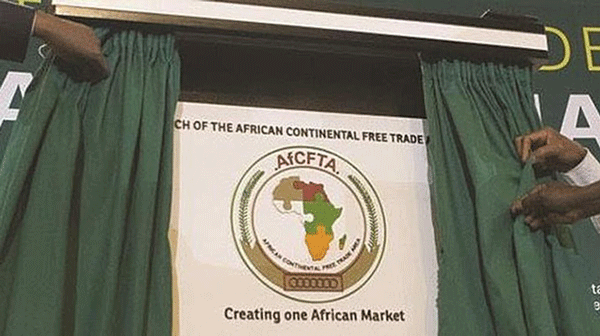
THE African Continental Free Trade Area (AfCFTA) came at the time when Zimbabwe is on the verge of collapse, struggling economically as witnessed by widespread poverty, with COVID-19 dominating the society.
AfCFTA is a project of the African Union aimed at creating a single market for goods and services. Majority of States are signatory to this pact, which will promote intra-Africa trade which has been highly dominated by the Chinese and the West causing trade dependency.
Paying attention to the ethos of Africa, AfCFTA is seen as a noble move towards the realisation of pan-Africanist objectives.
This is because AfCFTA is set to boost production, amplify competition, eradicate trade tariffs, as well as augment industrialisation within African States.
AfCFTA is set to boost foreign investment.
Zimbabwe must alter its policies to align them with other nations.
Failure of President Emmerson Mnangagwa’s “Zimbabwe is open for business” mantra to attract foreign direct investment will shape how we will benefit from the agreement.
Policymakers must enforce the ease of doing business so as to market Zimbabwe and put it at par with other nations to improve co-operation.
- Chamisa under fire over US$120K donation
- Mavhunga puts DeMbare into Chibuku quarterfinals
- Pension funds bet on Cabora Bassa oilfields
- Councils defy govt fire tender directive
Keep Reading
Zimbabwe must endorse multilateralism and maximise the opportunity to benefit from fellow African States.
This is because of the sour relationship with the West and not so beneficial look east policy.
The disadvantages of unilateralism can be seen through the effects of sanctions and ever ending economic crises since Zimbabwe’s withdrawal from the Commonwealth.
Most African States must liaise to save themselves from the Chinese threshold which is viewed as a modernised annexation of Africa.
AfCFTA is meant to create a single market for goods and services and to expand trading within African nations.
The question is what will Zimbabwe offer on this colossal market?
Zimbabwe has been the biggest importer for the past decades.
As the former bread basket of southern Africa, it’s high time farmers produced surplus to trade with other nations.
All sectors must be goal oriented for Zimbabwe to reclaim its status, thus there is need to promote production of goods for export so as to recover and maintain trade balance.
To export successfully, manufacturers must be aware of foreign competition, emphasis must be on quality and cost-cutting to meet an optimum standard to avoid losing the market to foreigners.
Furthermore the agreement will boost industrialisation which will result in competitive manufacturing.
Zimbabwean products are quite expensive as compared to those of other States.
It must retool its industries to boost production at lower cost to meet international standard.
In the past we have been exporting raw materials to South Africa mainly, but with the inception of AfCFTA, there is need to set up industries and improve exportation of finished products.
If a nation is more industrialised there is cheap production of goods and the value-addition advantage will be of beneficial to the locals.
The government of Zimbabwe should scrap a number of tariffs which control and to some extent hinder trade.
These tariffs were meant to enhance domestic trade and they were a source of revenue to the government.
With AfCFTA taking effect there is need to improvise on preferential tariffs and create an auspicious and viable environment for trade.
As a result trade will follow proper-formal channels unlike in the “past” were cross-border traders did all they could to avoid prohibitive.
Apart from eliminating trade barriers the agreement will open opportunities for small and medium businesses.
The economy of Zimbabwe after the indigenisation policy is being sustained by small and medium enterprises (SMEs).
There is need to grab this chance and promote SMEs to produce regionally competitive products to trade beyond borders.
This will result in economic growth, as small and medium businesses accumulate to about 80% of the regional enterprises.
Due to its crumbling economy Zimbabwe must be at the forefront of the AfCFTA initiative as the nation needs it most to recover.
Policies must be revised and the leadership must walk the talk.
This agreement, if used wisely, will address the issue of unemployment.
Youths must be encouraged to be innovative and participate as the agreement is the future of Africa which lies in the hands of the youth.
There must be awareness campaign to cover all the citizens so as to diversify our trade proficiency.
This will stimulate trade as the bulk of Zimbabweans are informal traders.
There is hope in AfCFTA, it ensures Africa unites towards development and break the yoke of poverty.
It is also in line with agenda 2030 of the UN and its SDGs for instance goal 8, which deals with economic growth.
Irrespective of diversity, there is need to homogenise heterogeneous economies to co-operate peacefully in adherence to WTO principles of sanitary and phyto-sanitary as well as anti-dumping. Together as one Africa, we can flourish.











